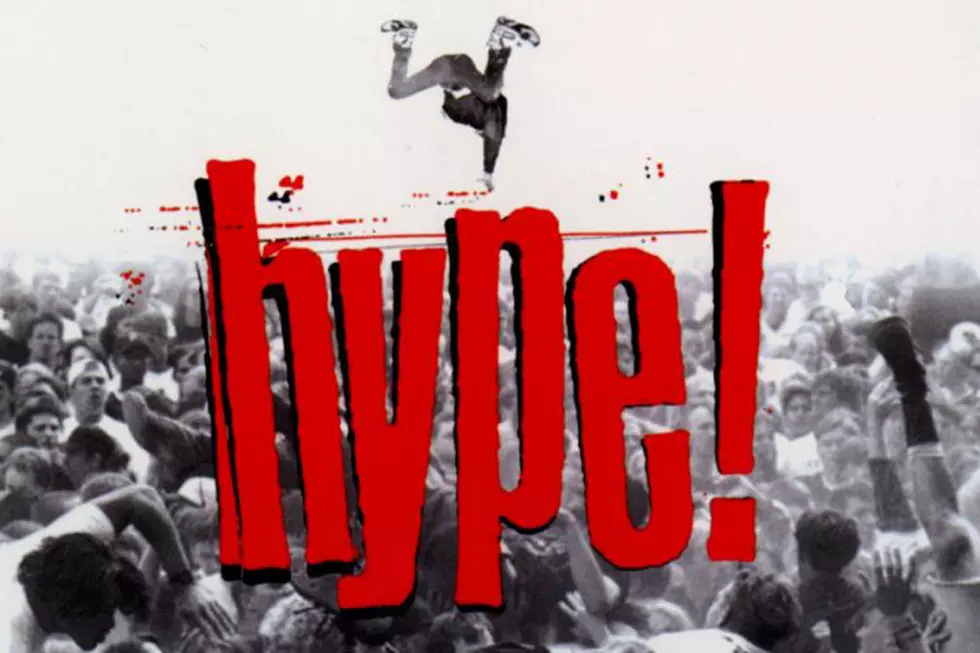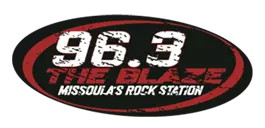
Led Zeppelin IV: Our Writers Answer 5 Levee-Breaking Questions
To celebrate the anniversary of Led Zeppelin's masterful fourth album on Nov. 8, we asked our writers five big, conversation-starting questions about where the 1971 record ranks among the band's acclaimed discography, which of its songs are the best and worst and exactly what we're supposed to call it. See if the answers make you sweat or groove.
Is Led Zeppelin's fourth album their best record?
Michael Gallucci: I think it's their most consistent album and their most focused. The first album hits harder at times, but there's hardly a wasted track on the fourth.
Jed Gottlieb: The fourth album is a bit of conundrum. It's the best rock 'n' roll record ever made and, at the same time, not even the best Zeppelin album. I guess it's like Sgt. Pepper's or Who's Next in that way -- iconic, amazing, emblematic of the band, but not their best work. I'd go with Physical Graffiti, but probably because it's a double album and more Zep is always better. If that's cheating, Houses of the Holy, because like IV it displays their huge range in eight tracks.
Nick DeRiso: My head says “yes.” After all, every element of their legend is there, in one neat package. Besides, everybody says it’s their best album, right? So, it just has to be, right? Which is probably why my heart always preferred Houses of the Holy, which likewise featured many elements of their legend – and a bunch of very welcome surprises.
Eduardo Rivadavia: Maybe the ultimate testament to Led Zeppelin's greatness is that an album as colossal and widely worshiped as IV actually has three or four legitimate challengers for "Best Album" within their amazing catalog. But if IV is not their best for groundbreaking reasons (that would probably be Led Zeppelin), influential, mold-setting reasons (Led Zeppelin II) or all-you-can-eat-reasons (Physical Graffiti), it certainly stands as the group's archetypal LP (Houses of the Holy being a near-perfect spiritual doppelganger) and one of hard rock's, to boot.
Matthew Wilkening: Generally speaking, whichever of Led Zeppelin's first seven albums is playing on your stereo right now is the best record that's ever been made. But I'd give IV the silver medal and save the gold for Physical Graffiti, which has even more range, weight and sophistication.
What's the best song on the album?
Gallucci: It changes all the time. The opening rush of "Black Dog" is one hell of a way to kick off an album, and "Stairway to Heaven" is such an expertly structured song. But "When the Levee Breaks" is the one that most often has me turning up the volume. Those drums!
Gottlieb: Honestly, "Stairway to Heaven." I know, I know, but if you can sit down and listen to it with fresh ears, you'll find it's astounding. Also, like the album itself, it's emblematic of the band. It shows off what they do best:: creepy, Celtic folk, cryptic lyrics paired with haunting vocals, a bombastic crescendo with evil blues guitar and drum fills that define perfection. That said, the first 10 seconds of "Four Sticks" is probably the best thing they've ever done. Actually, that said, the first minute of "When the Levee Breaks" is probably the best thing they've ever done.
DeRiso: Similarly, there’s a part of me that doesn’t want to pick “Stairway to Heaven” -- that feels like this is taking the easy way out. (I certainly could make an argument for “When the Levee Breaks,” for instance.) But, as with other career-defining moments from rock’s biggest bands, there’s a reason “Stairway" has become synonymous with Led Zeppelin. Even endless repetition can’t completely sap its power.
Rivadavia: This is like asking a Sultan to name his favorite concubine ("What day is it?") -- in other words, impossible. But, for the sake of argument, I'll pin the donkey's tail on "When the Levee Breaks," which closes the LP with so much power and atmosphere, and maybe the heaviest drum sound ever captured, from the bottom of that stairwell at Headley Grange. I suppose, too, because it's fundamentally a blues, it can represent Led Zeppelin's musical bedrock in its most epic form better than any of the other major candidates here, "Black Dog" and "Stairway to Heaven."
Wilkening: "Black Dog." So powerful, so sexy, so smart. We've all read about the hard work and creative genius that went into making the song work, but it's impossible to think of it as anything but purely instinctual when it's playing.
What's the worst song on the album?
Gallucci: "Four Sticks." I like the concept behind the song -- John Bonham plays it with four drumsticks -- but it sounds half-formed compared to the other tracks on the album.
Gottlieb: "Rock and Roll." It's all down hill after the drum part that opens the song. It's not a bad tune, but it could be the least awesome thing the band has done. It also suffers from being a good song on an album of revelations.
DeRiso: “Four Sticks,” I suppose – though there are no small number of days when solving this polyrhythmic puzzle is just a hoot.
Rivadavia: Easy. "Four Sticks" in a landslide. Though I've had my issues now and then with the hippie Tolkien trip of "Misty Mountain Hop," "Stairway" (through sheer airplay fatigue) and even "Black Dog" (because I clearly have problems), "Four Sticks" is the only song that consistently feels sub-par when I listen to IV. The fact its named that way because Bonham played it with a pair of drumsticks in each hand doesn't say much about the lyrics, which I've heard described by Jimmy Page as being abstract, and to me that sounds like another way of saying, "This was filler and we couldn't even be bothered to tidy up the lyrics, so yeah, it's so abstract, man."
Wilkening: It's not "Four Sticks," it's "Rock and Roll." Which by no means sucks, but is more closely related to In Through the Out Door's "Hot Dog" than most people probably want to admit.
Fill in the blank: “When 'Stairway to Heaven' comes on the radio, I _________”
Gallucci: " ... turn it off." It's been so overplayed over the years that the only way I can listen to it now is within the context of the rest of the album. And then I love it all over again.
Gottlieb: If I catch it at the beginning, I always keep it on. How could you change it? It would be like flipping on the TV to see Indiana Jones running from that boulder and not sticking it out to watch those Nazi faces melt. If I come across it in the middle, I ditch it. Because, as any architect will tell you, half a stairway is no stairway at all.
DeRiso: I go for very, very long stretches without listening to “Stairway" all the way through. It will come on the radio, and I will typically cut it off before Page has even gotten through that first guitar figure. But then, at some point, I’ll let it play – and I’m left to wonder all over again at this song's layered complexity. It’s actually a journey I cherish, but only every so often.
Rivadavia: If I catch it near the start I'll most often flip the dial while remembering Wayne and Garth's "No Stairway" sign in the movie guitar shop. But if I catch it more than halfway through, and especially near the building solo section, then I'll usually hang around for the duration. Like many ubiquitous classic-rock staples, "Stairway to Heaven" has been shoved down our throats until sickness is inevitable, but that's through no fault of the song itself.
Wilkening: ... figure out how long it's going to be until I get to my destination, and if necessary, take a slightly longer route so that Robert Plant's final words fade out just as I pull into the parking spot.
What is the name of Led Zeppelin’s fourth album?
Gallucci: Led Zeppelin IV if I'm writing it, "fourth album" if I'm talking.
Gottlieb: Four. But a Zep album by any other name would sound as sweet.
DeRiso: Led Zeppelin IV. I once had a titanic teenage argument over this with the hipster record clerk at my favorite hometown shop who insisted on calling it Zoso. I repaired to the huge catalog set up near the register, and angrily rifled through to the Zeppelin page – only to discover that Atlantic had it listed as Four Symbols. We were forced to call a truce, though I never – as you can see – actually changed my mind.
Rivadavia: Why, we all know the real title is "Gandalf Retires in the Countryside." That's what the cover shows, right?
Wilkening: Led Zeppelin IV. If they wanted to break the pattern established by the numerical naming of their first three albums, they should have given it an actual title. Also, unlike horrible frat-boy abbreviations such as "za" or "guac," it's perfectly acceptable to occasionally and judiciously refer to it as "Zep IV."
Why Led Zeppelin Won’t Reunite Again
Led Zeppelin Albums Ranked
More From 96.3 The Blaze










